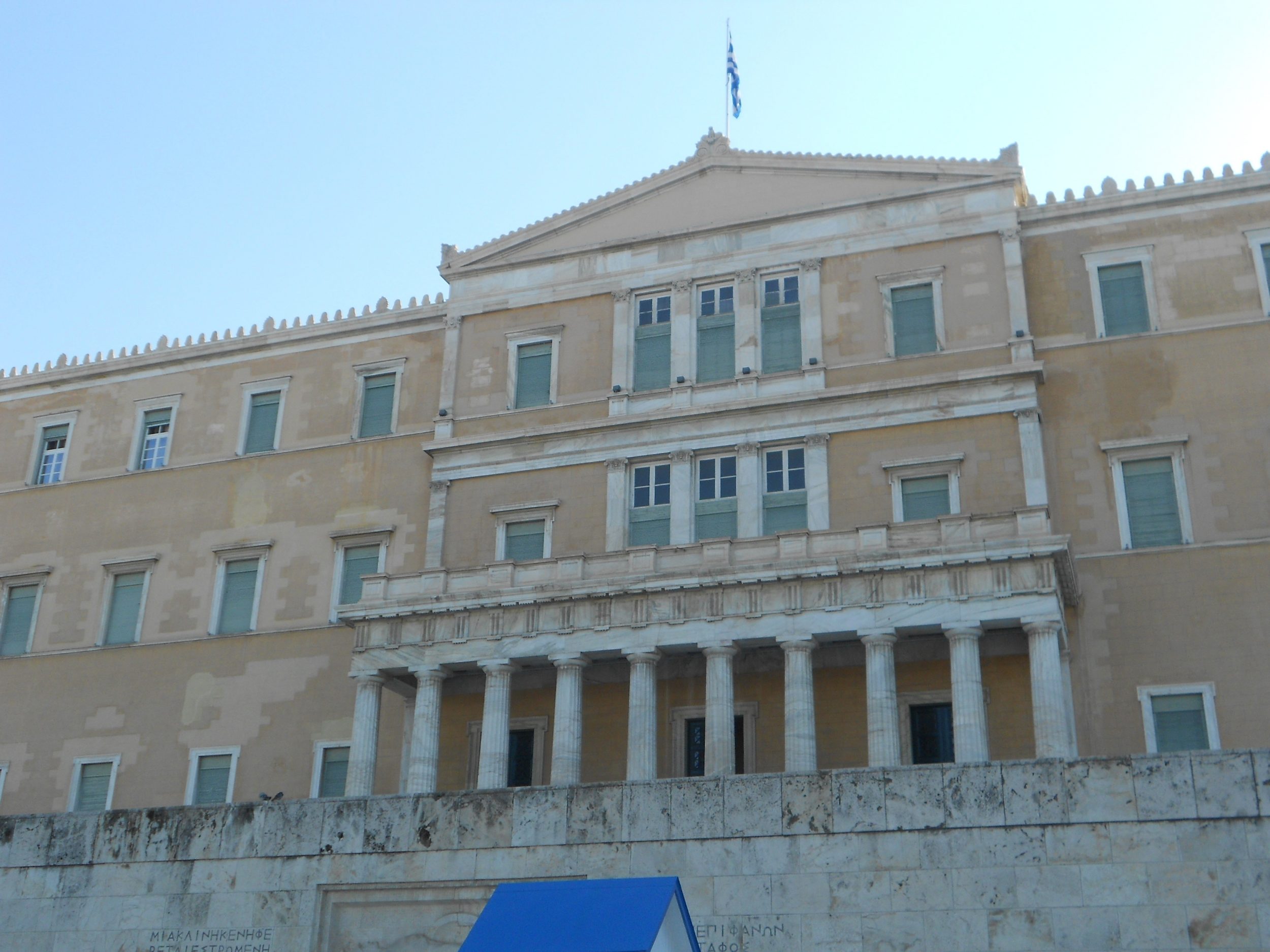The announcement by the Greek Prime Minister, George Papandreou, that he will seek to hold a referendum to get public backing for last week’s euro-deal has created a storm not only domestically but also in other EU capitals. The immediate future for Greece now looks very uncertain with several plausible scenarios. What might happen next?
- Scenario 1: The Opposition forces an immediate election that scuppers the referendum idea.
Antonis Samaras, leader of the main opposition party, New Democracy (centre-right), has been pressing for elections for some time. Yesterday, he saw the Greek President, Karolas Papoulias, and pressed the case. But the President has no power to override Papandreou and the government. There has been speculation that New Democracy’s MPs might resign en bloc to make Parliament inoperable. But, as former PM (and ND leader) Constantine Mitsotakis, argued on Monday this would set a very dangerous precedent for the democratic system. The leader of the smaller splinter party from ND (the Democratic Alliance), Dora Bakoyiannis, has called on the President to resign – an act that would lead to elections. He is unlikely to do so. These two moves aside, the Opposition alone cannot force early elections.
- Scenario 2: Papandreou’s party (PASOK, Socialists) implodes and the government loses its majority, prompting early elections.
One PASOK MP has defected, six members of the party’s national council have called on Papandreou to step down, and former minister Vasso Papandreou (no relation) has called for a government of national unity. Papandreou has called for a vote of confidence in the Greek Parliament, prompting a three day debate starting today and culminating in the crucial vote on Friday. With his majority now down to 152 out of 300 MPs, the vote is now on a knife-edge. There is clearly much discontent within PASOK. Yet, early elections could well decimate PASOK’s parliamentary strength. The pressure against such ‘treachery’ will be intense – there are parallels here with the crisis Papandreou’s grandfather faced as PM in 1965. But it’s finely balanced and though Papandreou is off to a G20 pre-meeting in Cannes with Merkel and Sarkozy today, he might not be PM by Friday night.
- Scenario 3: Papandreou gets his vote of confidence and survives for a referendum to be held.
The proposal is for a referendum on last week’s euro-package, perhaps in December or January. The interim period will likely see more instability on the financial markets, putting pressure on the rest of the euro-zone and Italian PM, Berlusconi, in particular. President Sarkozy was clearly seething with anger at Papandreou’s move on Tuesday night in a TV address. Around Europe the reaction seems the same and the White House issued a long critical statement. Market confidence in the viability of last week’s euro-deal had already waned at the start of this week and the Greek move led to falls across the major stock exchanges. The package agreed last week may well be delayed or even unravel. Parliaments in Slovakia, The Netherlands or elsewhere may postpone their ratification of the deal: why vote before Greece has agreed? Indeed, there is a risk that the next instalment of the bailout loan to Greece will be withheld pending the referendum outcome. In that case, the Greek state could be bankrupt by Christmas.
Can the referendum be won? Current polls show 60% of Greeks opposed to last week’s deal. But a long campaign could shift the debate to one of whether to stay in the euro and whether to stay in the EU. These propositions remain well-supported and receive the backing of the ND party and others. The implications of a ‘no’ vote would bring immediate economic chaos to Greece, if not the euro-zone, and almost inevitably lead to a rushed default. To most, a ‘no’ vote would be a nightmare.
Why did Papandreou call for a referendum? Some of the negative reaction has stemmed from the manner of the announcement. It appears to have been a very personal initiative: not even the finance minister was consulted beforehand. Clearly, Papandreou had not checked whether his troops would back him.
Though Greece has little history of referendums – the last was in 1974 on the return of the King – Papandreou has reportedly floated the idea for the last year or more as a means of gaining public backing. With the widespread strikes, protests and riots there has been a continuing question of governability and legitimacy. The personal pressure on the PM and his ministers has been immense. A referendum might show a ‘silent majority’ in support of the euro-zone measures and re-define the terms of the debate. It does seem paradoxical that the Eurosceptic press in the UK is outraged that the Greeks might vote on its membership terms.
The move is either audacious or foolhardy. Papandreou has gambled and the stakes for Greece could hardly be greater.
This is an Op-Ed piece for The Guardian Note: This article gives the views of the author, not the position of Greece@LSE, the Hellenic Observatory or the London School of Economics.






